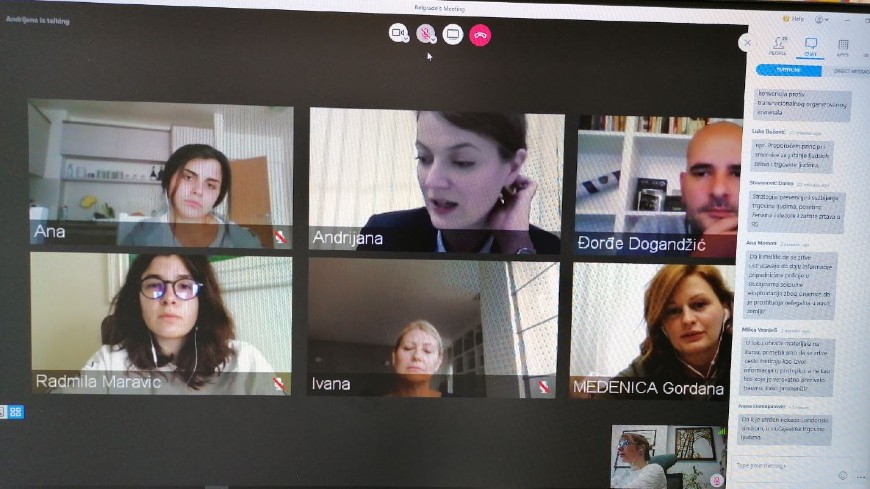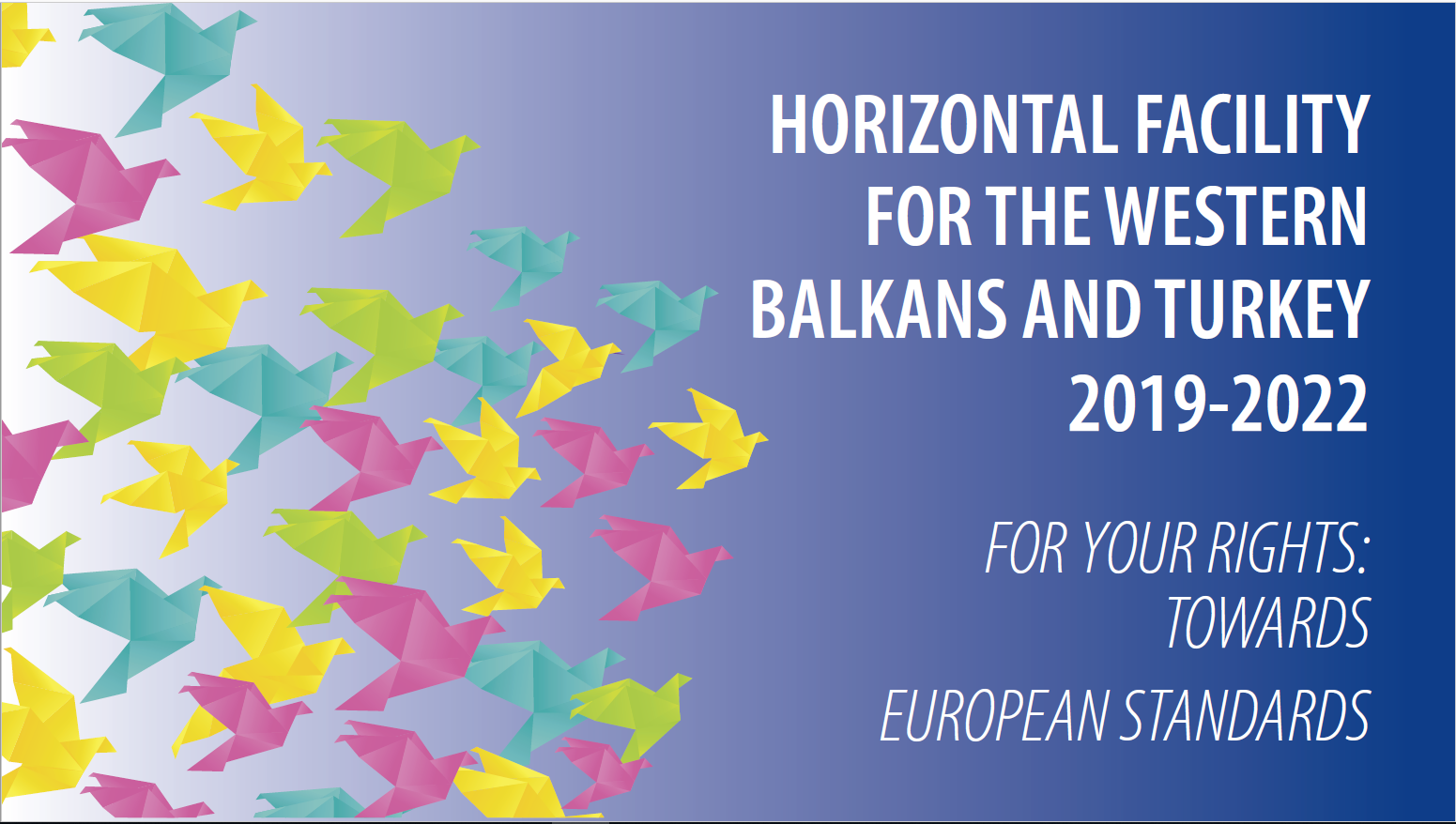As part of the ongoing HELP (Human Rights Education for Legal Professionals) online course for law students in Serbia on combating trafficking in human beings, presentations and discussions with the National Anti-trafficking co-ordinator and representatives of the Centre for Human Trafficking Victims’ Protection and the NGO ATINA took place on 27 and 29 May 2020.
„Being in touch with professionals who are working with victims of human trafficking on a daily basis, made this issue more real and closer to all of us. It made clear how serious a crime human trafficking is, and how harmful it can be for those affected“, said the students after the first of three lectures organised within the HELP online course developed under the Council of Europe Convention on Action against Trafficking in Human Beings.
During his presentation, Mitar Djuraskovic, National Anti-Trafficking Coordinator from the Ministry of the Interior, introduced students to the national legal and strategic framework, and to the operational functioning in combating trafficking in human beings in Serbia (also referring to GRETA monitoring and recommendations). He explained the roles and responsibilities of each actor participating in preventing and combating human trafficking, especially focusing on the fight against child trafficking. Furthermore, he highlighted which actions each person can take to combat human trafficking (for example, by staying informed, the type of help/referral can be provided to potential victims, by avoiding using products or services delivered by people/institutions that are exploiting other people…).
Students discussed the importance of identifying and assisting victims with Djordje Dogandzic, representative of the Centre for Human Trafficking Victims’ Protection and Andrijana Radoicic, from the Citizens Association for combating trafficking and all forms of gender-based violence (ATINA). Mr Dogandzic introduced students to the role of the Center, types of trafficking, victim statistics in the Republic of Serbia, as well as to the rights and principles of victims of human trafficking.
“Each experience is different, and trauma can cause many different behaviours and consequences. This is the most important thing to know when communicating with victims”, said Radoicic while explaining the challenging process of reintegrating victims and the types of assistance that victims may need as well as resources that can be provided by relevant key anti-trafficking actors.
The next online gathering with law students is planned for 8 June 2020. Peter Van Hauwermeiren, director of the Belgian Anti-Trafficking Unit within the National Social Security Office, will present the Belgian experience when it comes to fighting trafficking in human beings for the purpose of labour exploitation and provide students with practical cases and good practice examples based on his professional experience.
The online HELP course organised within the joint European Union/Council of Europe programme Horizontal Facility for the Western Balkans and Turkey II - "Preventing and combating trafficking in human beings in Serbia", implemented by the Council of Europe, with support of the Council of Europe HELP (Human rights education for legal professionals) Unit, started for the first group of 40 law students on 21 April and course will continue until 15 June 2020.




